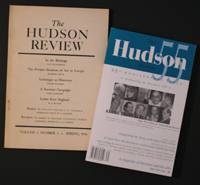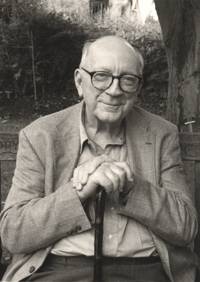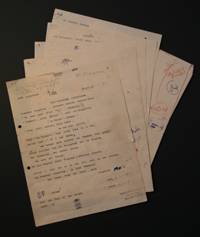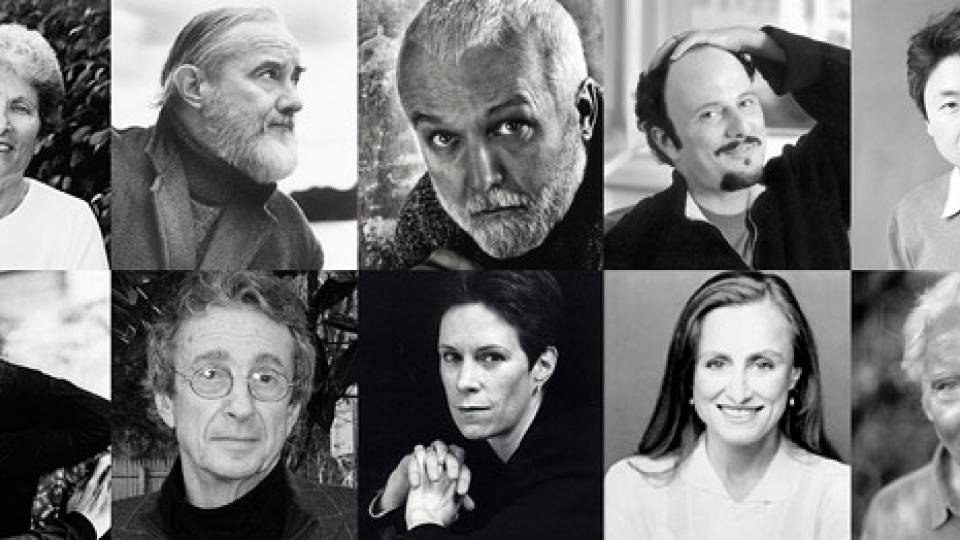The archives of The Hudson Review, one of the most distinguished and
influential American literary magazines, will permanently reside in the
Princeton University Library.
Paula Deitz, editor of the quarterly publication, has chosen the
library's Department of Rare Books and Special Collections to house the
archives, which include hundreds of cartons filled with authors' files,
corrected manuscripts and other original materials documenting the
history of the magazine from its founding in 1948 to the present.
"The extensive correspondence files alone hold immense research value
for generations of literary scholars," said Don Skemer, curator of
manuscripts in the library. "This is one of our most significant
acquisitions in decades."
The Hudson Review was founded in New York City by three Princeton
graduates -- Frederick Morgan '43, Joseph D. Bennett '43 and William
Arrowsmith '45 -- who had studied creative writing with the poet and
critic Allen Tate and worked on the Nassau Literary Magazine. Their
intent was to create a "little magazine" dedicated to publishing good
poetry and prose, including short fiction, criticism and other works of
renowned and unknown writers.
The founders took pride in judging contributions on the basis of their
individual merits and not being bound by any ideology. In introducing
the first issue in 1948, the editors declared that the magazine "must
alike condemn the opportunism that seizes upon the ephemera of a
culture, and the pedantry that would starve its roots."
The magazine has grown to serve as a major forum for the work of new
writers and for the exploration of new developments in literature and
the arts. It has a distinguished record of publishing little-known or
undiscovered writers, many of whom have become major literary figures.
Joyce Carol Oates, the Roger S. Berlind '52 Professor in the Humanities
at Princeton, recently observed: "Like the Paris Review, Antaeus and
Kenyon Review, and very few others, Hudson Review is a literary
magazine that has helped to shape American literature of the 20th
century."
Morgan, who died in 2004, guided The Hudson Review for its first
decades, stepping down on its 50th anniversary in 1998. He was
succeeded by Deitz, who was his wife.
"Since the idea for The Hudson Review originated in Allen Tate's
creative writing classes at Princeton with his pronouncement, 'You boys
should start your own literary magazine,' we believe that the journal's
history has come full circle now that its 58-year archive and Frederick
Morgan's papers have returned home, as it were, to the Princeton
library," said Deitz. "I am gratified by the wealth of material already
in Princeton's manuscript collection that both complements The Hudson
Review's holdings and relates to Fred's early literary life."
American authors and critics figure most prominently in the archives,
but European and Latin American writers appear frequently as well.
Among the many significant writers represented are Saul Bellow, Isaiah
Berlin, R.P. Blackmur, Hayden Carruth, T.S. Eliot, Dana Gioia, Herbert
Gold, Galway Kinnell, Thomas Mann, James Merrill, W.S. Merwin, Marianne
Moore, Octavio Paz, Yannis Ritsos, Theodore Roethke, Anne Sexton,
Wallace Stevens, Allen Tate, Dylan Thomas, Paul Valéry, William Carlos
Williams and Yvor Winters.
Particularly important, according to Skemer, are The Hudson Review
files pertaining to Ezra Pound during the 1950s. The files include
Pound's corrected typescripts for "Cantos 85-89" and "Cantos 96-97," a
corrected typescript of his translation of Sophocles' "Women of
Trachis" and 215 letters, notes and cards written by Pound, mainly to
Morgan, from the late 1940s to the late 1950s.
As Morgan recalled in a 1998 interview, "Unlike Allen Tate, Ezra Pound
was a hectoring kind of would-be mentor. He wanted to tell me exactly
what to do issue by issue. For quite a while after the first meeting
[in 1950] he wrote me two or three letters a week, giving me
instructions."
Complementing the archives of The Hudson Review are Morgan's own
papers, which contain his manuscripts and drafts, journals and
commonplace books, personal correspondence and other materials. Many of
the letters he received are from authors whose work was published in
The Hudson Review, including Hayden Carruth, Herbert Gold, Anthony
Hecht, Joyce Carol Oates, Louis Simpson and Charles Tomlinson. A
well-known American poet in his own right, Morgan was the author of
many published works, including: "A Book of Change" (1971); "Poems of
the Two Worlds" (1977); "Death Mother and Other Poems" (1979);
"Northbook: Poems" (1982); "Poems: New and Selected" (1987); and "The
One Abiding" (2003).
The archives of The Hudson Review join the distinguished research
holdings on publishing history in the Princeton University Library.
These collections are especially rich in American materials, including
the archives of Charles Scribner's Sons, with files on F. Scott
Fitzgerald, Ernest Hemingway, Edith Wharton, Thomas Wolfe and some
2,500 other authors. Largely complete as well are the archives of Henry
Holt & Co., John Day Co., Derrydale Press, Story and the Quarterly
Review of Literature.
Also at Princeton are selected archives of Doubleday, Harper &
Brothers, G.P. Putnam and Princeton University Press. These are
supplemented by the records of literary agencies such as Harold Ober
Associates, the papers of prominent literary editors such as Saxe
Commins (Random House) and Harold Loeb (Broom), and the papers of major
modern authors such as Sylvia Beach, James Gould Cozzens and F. Scott
and Zelda Fitzgerald.
The acquisition of The Hudson Review archives and Morgan papers was
made possible in part by the Richard M. Ludwig Endowment, established
in 2001 by Michael Spence, a member of the class of 1966, and Monica
Spence. It is anticipated that the archives and papers will be fully
organized and ready for researchers by summer 2007.
For more information, contact Skemer.





